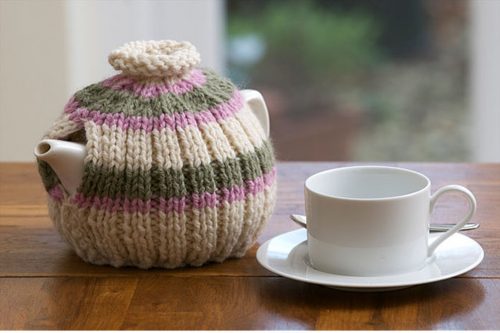Dementia creates unpredictable situations. Dementia carers have to deal with these, sometimes life threatening but usually traumatic events, at little or no notice. How good are you at dealing with the unexpected? Most people struggle with sudden change. Are you able to suddenly change your plans or does this stress you?
Unpredictable
Dementia care regularly throws up things you could never have imagined possible. These situations are impossible to predict and therefore to prevent. It can be shocking, devastating, traumatising and exhausting. A person with dementia can be very unpredictable. The things they do, or the situations they find themselves in are often outside our previous experience or expectations. A short-circuit of the person’s brain means they will do things in very novel and sometimes dangerous or damaging ways. You might find this traumatic. The person with dementia sees it as quite logical.
It is all new
When you first become a dementia carer, it is all new to you. You may not understand the condition and few are prepared for all that lies ahead. This makes it very hard to talk about to others not experiencing it. Thinking that friends, colleagues or even family can not possibly understand – how could they? You barely understand it yourself!
Some real examples
So, for those of you out there who have not experienced this, I am going to give you some real examples. When you read them, try to think about the implications behind the situations, don’t just take them literally, at face value. These examples may help you to have an understanding of the sorts of situations your colleagues or family members could be dealing with. Bear in mind that this will be in addition to any other tasks, jobs or responsibilities, even health issues that the carer may have.
Money issues
- A lady in her 70s with Alzheimer’s is struggling to manage money. She takes £20 notes when she goes shopping. This is much easier as it saves having to work out any change. To begin with her husband does not notice. The wardrobe filling up with change alerts him to the issue.
Whilst able to still go shopping, the lady is vulnerable to being taken advantage of. She has to rely on peoples’ honesty to give her the right change. It is not safe carrying around large amounts of cash.
The bank tells her that she should not keep lots of cash at home……so she shreds it!

Unpredictable: The carer could not have expected the person to shred banknotes.
Muddling along
- An elderly couple sits down to supper. The wife has dementia ,whilst he has some early memory issues. She is still able to cook, which he encourages as this is definitely not his department. When dishing up the veg, they discover that she has completely forgotten to prepare a main ingredient. They go without.
A whole cauliflower is found in the freezer, whilst several (meant to be frozen) ready meals are in the fridge. The husband justifies to himself that the ready meals are safe to eat because ”they have not reached their use by date and were bought less than a week ago”. It is nearly a week since they have gone shopping!
How do you make tea?
- A grandmother with dementia was living with her daughter’s family. Her daughter was trying to keep her at home for as long as possible. When she asked her granddaughter to show her how to make tea, the eight-year-old was happy to show her. Fetching a mug, she put a teabag in it and poured boiling water into it, added some milk and passed the mug to her grandmother. The grandmother became angry, throwing hot tea over the child.This was a safeguarding issue which should not be ignored! However, the grandmother was not trying to hurt her granddaughter. It was just that it was not the answer to her question. You make tea in a teapot! That was the way she had learned to make tea. She did not have the communication skills or language to explain herself, so throwing it at her granddaughter was simply the result of her frustration. It was clear, however that the situation could not continue. Contrary to what the daughter had expected, her mother’s health and wellbeing improved dramatically in her new care home. Stress levels were reduced all round and time spent together became more relaxed.

Unpredictable:You make tea in a teapot!
Unintended consequences
- My mother has dementia and lives in a warden assisted flat. On one occasion, when being picked up for a church group meeting, an ambulance is called. She has difficulty managing the door entry system as it seems very loud to her, due to her acute hearing. Feeling stressed, she pulls the Care Line cord and goes looking for her visitor. By the time Care Line responds, the flat is empty. Because there is no response from her and no warden at the time, an ambulance is sent to check her out.
I am on the phone to her when the lady giving her a lift buzzes for entry. Forgetting I am there, she drops the phone. It is very shocking and upsetting, hearing my mother getting more and more agitated. I can feel her stress. At work 20miles away I feel powerless. I can hear Call Line trying to speak to her, but there is no response.
Totally unaware that she has pulled the Care Line cord, my mother finds the lady giving her a lift and they go off to their meeting together.
Care Line calls me, as her named carer, to inform me that an ambulance has been called. I explain what I know, but because they can get no response from her they have no choice but to attend. CareLine later inform me that her flat is empty ( which I knew). Unfortunately, the effort of picking my mother up is too stressful, making the lady late. I later receive a call to say she can no longer offer my mother a lift – another social opportunity is lost.
Health hazard
- Arriving at my mother’s flat to check up on her, I find a toilet brush in the kitchen. She tells me she needs to use it to ‘clean’ the worktops! I have to remove her from the kitchen and give everything a thorough clean with bleach. This safeguarding issue is a warning. She could become very ill and is therefore a danger to herself. We investigate care homes shortly afterwards.
No notice emergency
- An elderly gentleman suddenly goes into hospital. His daughter gets the message at work. She leaves immediately to support her mother who has dementia. It soon becomes obvious that her mother’s dementia is far more advanced than she or any of her siblings have appreciated. Her father, doing everything for her, has covered up what was really gong on. She tries to arrange for her mother to go into a care home, but they can’t fit her in straight away. Her mother cannot be left unattended. The next two weeks go by in a whirl of organising care, coping with her father very ill in hospital and sorting out her family. Luckily she was able to take the time off.
Our own wellbeing depends on having the support and understanding of management, family and friends. It is amazing what people can cope with when they feel supported. Managers often fail to appreciate the value of support to the carer and to others in the team. Seeing true support when it is needed makes people think twice about leaving. They realise that they might one day need support and another employer or manager might not give it.
Wrong house
- A husband with dementia would go out for a walk, but kept returning next door by mistake. Convinced that the neighbours were in his house, he would start shouting at their young daughter, telling her to get out of his house. This family had only recently moved next door. The father’s reaction was to be very abusive towards the wife/carer, which she naturally found very hard to cope with.

Unpredictable: Easy for a person with dementia to choose the wrong house
Pulling a sickie
- My phoned rings just as I am leaving for work at 0730. My mother is calling me. She doesn’t feel very well, can’t possibly go to her day care centre. They are due to pick her up in an hour. I sense that there is nothing wrong with her at all – she sounds very pleased with herself for having thought of this ruse! I cancel her lift, inform the day care centre and reinstate her meals on wheels. Her plan has worked, there is a high chance she will never go again . This is such a shame as she feels very lonely being on her own all day, but I have no alternative.
Much later, my mother indignantly confides that the people at her day care centre tried to give her a bath!
I think about this later. To be fair, if I am going for a day out, a bath is the last thing I am expecting!
No off button
Dementia carers don’t switch off. They spend many waking, and sleeping, hours worrying about what has happened and what might happen. They revisit past events, often being very hard on themselves. A dementia carer once told me that it finally hit her six months after her mother’s death. The number of hours of the day and night spent worrying about past events and fearing what would come next, trying to plan ahead.
Positive things you can do
Here are some positive things you can do. The only course of sensible action is to plan the things you know you need. Unpredictable events are inevitable, but at least you will only have to deal with them when the time comes.
As soon as you know that you are impacted by a person’s dementia, you should check that the following are in place as a matter of urgency:
- Attendance Allowance
- Lasting Power of Attorney (financial and medical)
Note: If the person has already lost capacity you may need to investigate becoming a deputy through the Court of Protection. https://www.gov.uk/become-deputy/apply-deputy - Funeral plans
- Carer passport
These are also very useful:
- This is Me
- Lions Message in a bottle
- Blue badge
- Council Tax exemption
- Check out Care Homes so you already have a preferred shortlist if it is needed. You could even trial it for a bit of respite.
There is some comfort in knowing that the predictable is sorted. As a bonus, this also makes it easier to sort out the unexpected issues when they arise…as they will!
Your stories
We would love to hear your stories. Please contact us to share your own tales of the unexpected!
